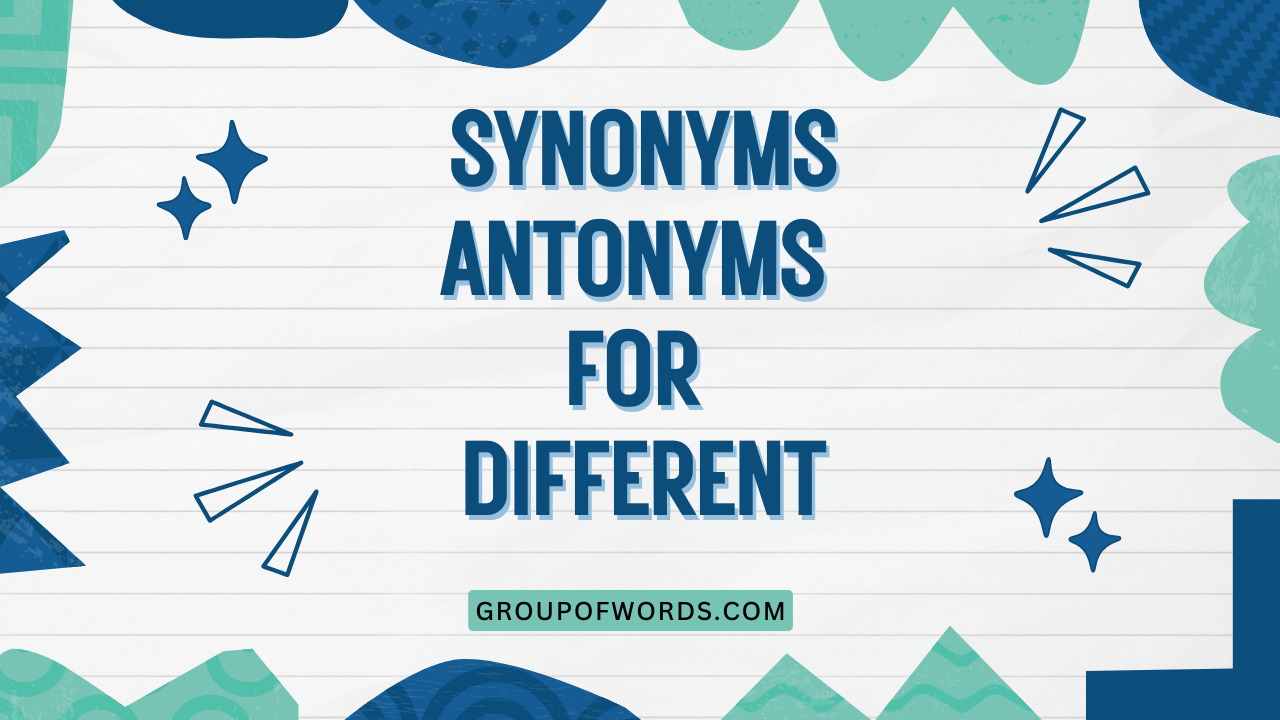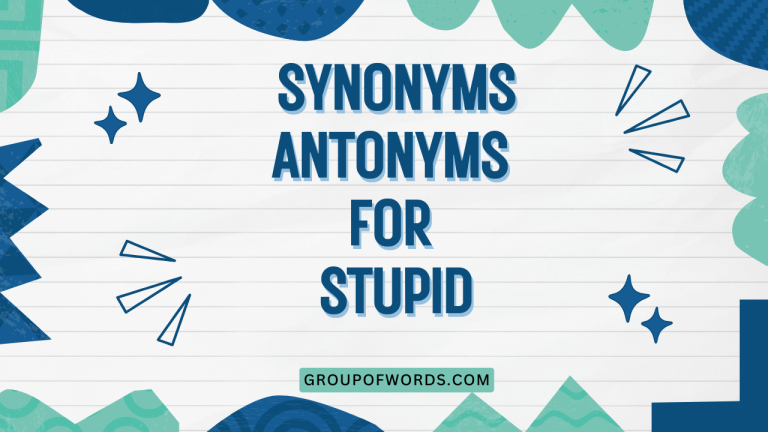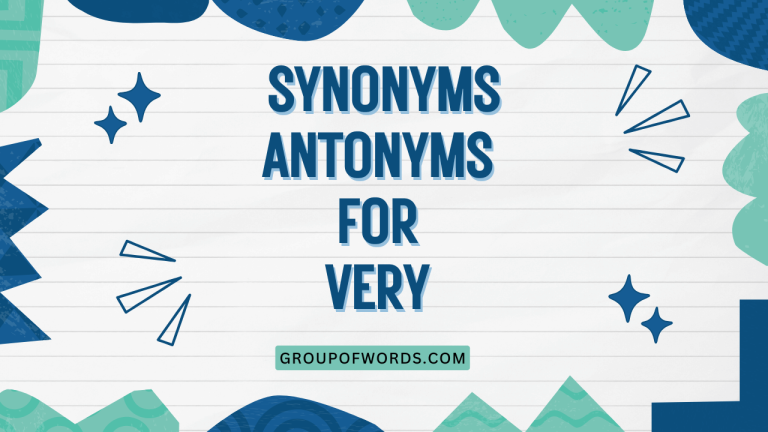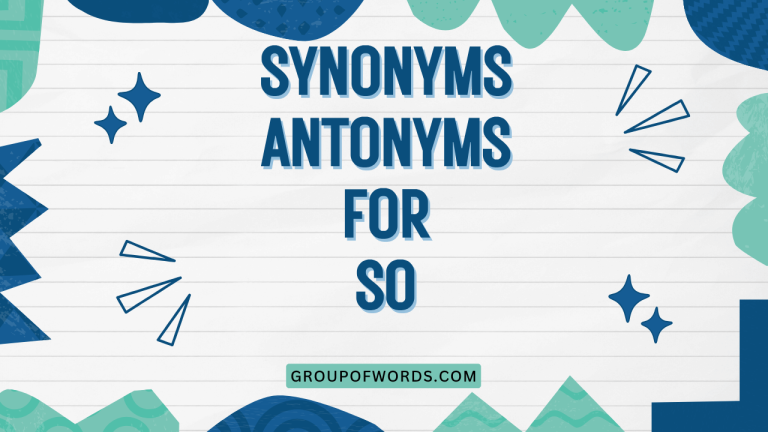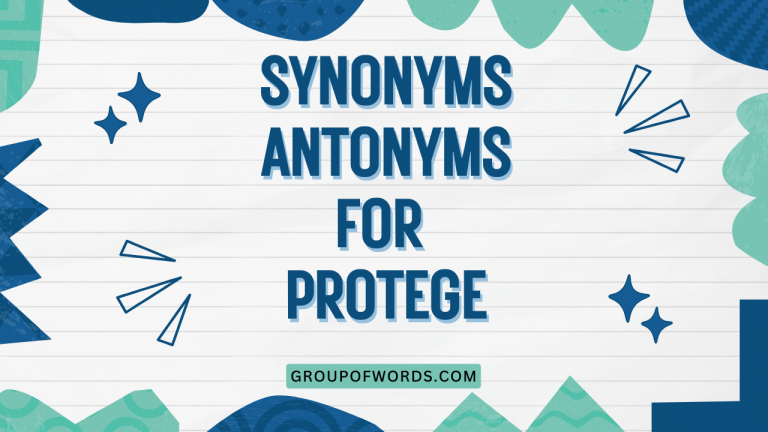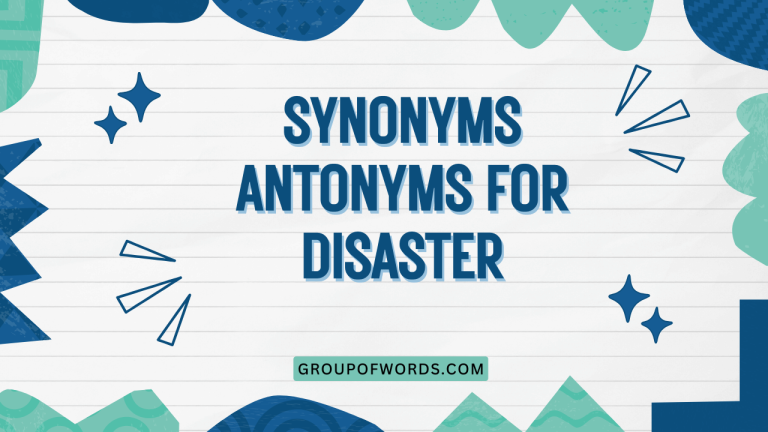Synonyms & Antonyms: Mastering Word Relationships
Understanding synonyms and antonyms is crucial for expanding your vocabulary and enhancing your communication skills in English. This knowledge not only improves your writing and speaking abilities but also deepens your comprehension of texts.
This article provides a comprehensive guide to synonyms and antonyms, covering their definitions, types, usage rules, common mistakes, and practice exercises. Whether you are a beginner or an advanced learner, this guide will help you master the nuances of word relationships and use them effectively.
This article will benefit students preparing for exams, professionals aiming to improve their communication, and anyone interested in enriching their vocabulary. By understanding the subtle differences between words and their opposites, you can express yourself more precisely and engage with language on a deeper level.
We’ll explore numerous examples, practical tips, and exercises to make learning both effective and enjoyable.
Table of Contents
- Introduction
- Definition of Synonyms and Antonyms
- Structural Breakdown
- Types and Categories of Synonyms and Antonyms
- Examples of Synonyms and Antonyms
- Usage Rules for Synonyms and Antonyms
- Common Mistakes with Synonyms and Antonyms
- Practice Exercises
- Advanced Topics
- Frequently Asked Questions (FAQ)
- Conclusion
Definition of Synonyms and Antonyms
Synonyms and antonyms are fundamental concepts in vocabulary and language development. Understanding these relationships between words allows for more precise and effective communication.
In this section, we will define each term and discuss their significance in English grammar.
Synonyms
Synonyms are words that have similar meanings. They can be used interchangeably in some contexts, but it’s important to note that perfect synonyms are rare. Usually, synonyms have slightly different connotations or are appropriate for different situations. For example, “happy” and “joyful” are synonyms, but “joyful” often implies a greater degree of happiness or a more specific kind of happiness.
Synonyms enrich writing by providing variety and preventing repetition. They allow you to choose the word that best fits the tone and context of your message.
Recognizing and using synonyms effectively is a key skill for both native and non-native English speakers.
Antonyms
Antonyms are words that have opposite meanings. Like synonyms, antonyms are not always absolute. The relationship between antonyms can be categorized into different types, such as complementary, gradable, and relational antonyms. For example, “hot” and “cold” are antonyms, while “up” and “down” are also antonyms but represent a different kind of opposition.
Antonyms are useful for creating contrast and highlighting differences in meaning. They can be used to add emphasis and clarity to your writing and speech.
Understanding antonyms helps to expand your vocabulary and improve your ability to express complex ideas.
Structural Breakdown
The structure of synonyms and antonyms involves understanding how words relate to each other based on their meanings. Synonyms share semantic features, while antonyms possess contrasting semantic features.
Analyzing these relationships helps in choosing the right word for a specific context.
Synonyms often have similar roots or are derived from the same language family, which contributes to their shared meaning. Antonyms, on the other hand, may have prefixes that negate the meaning of the base word, such as “un-” or “dis-.” For instance, “happy” and “unhappy” are antonyms because the prefix “un-” reverses the meaning of “happy.” Similarly, understanding the roots and affixes of words can aid in identifying both synonyms and antonyms.
Furthermore, the structural breakdown involves recognizing the grammatical function of words. Synonyms and antonyms must be of the same part of speech to be interchangeable or directly opposite.
For example, the noun “joy” can be a synonym for the noun “happiness,” and the adjective “beautiful” can be an antonym for the adjective “ugly.” Paying attention to the grammatical structure ensures that the word choice is appropriate and grammatically correct.
Types and Categories of Synonyms and Antonyms
Synonyms and antonyms can be categorized based on the nature of their relationship. Understanding these categories can help you use them more accurately and effectively.
Types of Synonyms
There are several types of synonyms, including:
- Absolute Synonyms: These are rare and can be used interchangeably in all contexts without any change in meaning. Examples are uncommon, but “begin” and “commence” are close.
- Partial Synonyms: These have similar meanings but are not interchangeable in all contexts. “Happy” and “content” are partial synonyms; while both describe a positive emotion, “content” suggests a sense of peace and satisfaction that “happy” might not.
- Near Synonyms: These have meanings that are similar but with subtle differences in connotation or usage. “Look” and “gaze” are near synonyms; “gaze” implies a longer, more intense look.
The choice of synonym depends on the specific context and the nuance you want to convey. Recognizing these subtle differences is crucial for effective communication.
Types of Antonyms
Antonyms can be classified into several categories:
- Complementary Antonyms: These are pairs where one word implies the absence of the other. Examples include “dead” and “alive,” or “on” and “off.” There is no middle ground; something is either one or the other.
- Gradable Antonyms: These represent opposite ends of a spectrum. Examples include “hot” and “cold,” or “big” and “small.” There are degrees of difference between them, such as “warm” or “medium-sized.”
- Relational Antonyms: These are pairs where one word implies a relationship with the other. Examples include “buy” and “sell,” or “teacher” and “student.” One cannot exist without the other.
- Reversives: These indicate movement in opposite directions. Examples include “enter” and “exit,” or “tie” and “untie.”
Understanding the type of antonym can help you use it more accurately and avoid common mistakes. Each type serves a different purpose in language and communication.
Examples of Synonyms and Antonyms
To further illustrate the concepts of synonyms and antonyms, let’s look at some specific examples organized by category. These examples will help you understand how to identify and use these word relationships effectively.
Synonym Examples
The table below provides a list of words along with their synonyms. This table is designed to help you expand your vocabulary and understand the subtle differences between similar words.
| Word | Synonyms |
|---|---|
| Happy | Joyful, Cheerful, Glad, Merry, Delighted |
| Sad | Unhappy, Sorrowful, Depressed, Melancholy, Gloomy |
| Big | Large, Huge, Enormous, Gigantic, Immense |
| Small | Little, Tiny, Minute, Petite, Diminutive |
| Beautiful | Pretty, Lovely, Attractive, Gorgeous, Stunning |
| Ugly | Unattractive, Hideous, Repulsive, Disgusting, Grotesque |
| Fast | Quick, Rapid, Swift, Speedy, Hasty |
| Slow | Sluggish, Leisurely, Gradual, Unhurried, Plodding |
| Angry | Furious, Irate, Annoyed, Irritated, Enraged |
| Calm | Peaceful, Tranquil, Serene, Placid, Composed |
| Smart | Intelligent, Clever, Bright, Brilliant, Sharp |
| Dumb | Stupid, Foolish, Unintelligent, Dense, Ignorant |
| Brave | Courageous, Fearless, Bold, Heroic, Valiant |
| Afraid | Scared, Frightened, Timid, Apprehensive, Anxious |
| Rich | Wealthy, Affluent, Prosperous, Opulent, Well-off |
| Poor | Impoverished, Destitute, Needy, Penniless, Indigent |
| Kind | Compassionate, Generous, Benevolent, Gracious, Considerate |
| Cruel | Brutal, Ruthless, Inhumane, Merciless, Savage |
| Loud | Noisy, Boisterous, Clamorous, Deafening, Tumultuous |
| Quiet | Silent, Still, Hush, Muted, Tranquil |
| Good | Excellent, Wonderful, Superb, Fine, Outstanding |
| Bad | Awful, Terrible, Dreadful, Poor, Unpleasant |
| Love | Adore, Cherish, Appreciate, Treasure, Value |
| Hate | Despise, Loathe, Abhor, Detest, Dislike |
| Begin | Start, Commence, Initiate, Launch, Originate |
| End | Finish, Conclude, Terminate, Cease, Stop |
| Help | Assist, Aid, Support, Facilitate, Benefit |
| Hinder | Obstruct, Impede, Hamper, Thwart, Delay |
| Create | Generate, Produce, Invent, Form, Design |
| Destroy | Demolish, Ruin, Decimate, Annihilate, Eradicate |
This table provides a comprehensive list of synonyms to enrich your vocabulary. Understanding these synonyms allows for more precise and varied communication.
Antonym Examples
The following table provides a list of words along with their antonyms. This table is designed to help you understand the opposite meanings of words and how to use them effectively.
| Word | Antonyms |
|---|---|
| Happy | Sad, Unhappy, Miserable, Depressed, Gloomy |
| Big | Small, Little, Tiny, Miniature, Diminutive |
| Beautiful | Ugly, Unattractive, Hideous, Repulsive, Grotesque |
| Fast | Slow, Sluggish, Leisurely, Gradual, Unhurried |
| Good | Bad, Evil, Wicked, Awful, Terrible |
| Love | Hate, Detest, Abhor, Loathe, Despise |
| Begin | End, Finish, Conclude, Terminate, Cease |
| Help | Hinder, Obstruct, Impede, Hamper, Thwart |
| Create | Destroy, Demolish, Ruin, Annihilate, Eradicate |
| Hot | Cold, Freezing, Chilly, Cool, Frigid |
| Light | Dark, Dim, Shadowy, Obscure, Gloomy |
| Easy | Difficult, Hard, Challenging, Complicated, Arduous |
| Rich | Poor, Impoverished, Destitute, Needy, Indigent |
| Kind | Cruel, Mean, Ruthless, Inhumane, Merciless |
| Loud | Quiet, Silent, Soft, Muted, Hush |
| Brave | Afraid, Cowardly, Timid, Fearful, Apprehensive |
| Smart | Stupid, Dumb, Foolish, Unintelligent, Ignorant |
| Clean | Dirty, Filthy, Polluted, Unclean, Soiled |
| Open | Closed, Shut, Sealed, Locked, Blocked |
| True | False, Incorrect, Untrue, Erroneous, Fallacious |
| Above | Below, Under, Beneath, Down, Underneath |
| Accept | Reject, Refuse, Decline, Deny, Disapprove |
| Add | Subtract, Deduct, Remove, Decrease, Diminish |
| Advance | Retreat, Withdraw, Recede, Backtrack, Retrogress |
| Agree | Disagree, Dispute, Contradict, Oppose, Dissent |
| Attack | Defend, Protect, Guard, Shield, Secure |
| Awake | Asleep, Sleeping, Unconscious, Drowsy, Napping |
| Arrive | Depart, Leave, Exit, Go, Withdraw |
| Bless | Curse, Condemn, Damn, Doom, Afflict |
| Bold | Timid, Shy, Meek, Bashful, Reserved |
This table provides a comprehensive list of antonyms to help you understand opposite meanings and expand your vocabulary. Recognizing and using antonyms can improve your communication skills.
Usage Rules for Synonyms and Antonyms
Using synonyms and antonyms effectively requires an understanding of context, tone, and the specific nuances of each word. While synonyms may have similar meanings, they are not always interchangeable.
Similarly, antonyms must be used appropriately to create the desired contrast.
Importance of Context
The context in which a word is used plays a crucial role in determining the appropriate synonym or antonym. Consider the sentence, “She was happy to receive the gift.” While “joyful” is a synonym for “happy,” it might not fit as well in this sentence if the context suggests a mild sense of pleasure rather than intense joy.
Similarly, the antonym of “happy” could be “sad” or “unhappy,” but the choice depends on the specific shade of meaning you want to convey.
For example, if you want to express a general lack of happiness, “unhappy” would be suitable. However, if you want to convey a deeper sense of sorrow, “sad” would be a better choice.
Always consider the surrounding words and the overall message when selecting synonyms and antonyms.
Formal vs. Informal Language
The level of formality in your writing or speech also influences your choice of synonyms and antonyms. Formal language often requires more sophisticated and precise vocabulary, while informal language allows for more relaxed and colloquial terms.
For example, instead of saying “assist” (formal), you might say “help” (informal). Similarly, instead of saying “terminate” (formal), you might say “end” (informal).
Consider the audience and purpose of your communication when choosing between formal and informal language. Using the appropriate level of formality enhances the clarity and effectiveness of your message.
| Word | Formal Synonym | Informal Synonym |
|---|---|---|
| Begin | Commence | Start |
| End | Terminate | Stop |
| Help | Assist | Aid |
| See | Observe | Look |
| Say | Declare | Tell |
This table illustrates how the level of formality influences the choice of synonyms. Understanding these distinctions is essential for effective communication in various contexts.
Common Mistakes with Synonyms and Antonyms
Using synonyms and antonyms incorrectly is a common mistake among language learners. These errors often arise from a misunderstanding of the subtle differences in meaning or the improper application of words in a given context.
Recognizing these mistakes is the first step towards avoiding them.
One common mistake is using synonyms interchangeably without considering their specific connotations. For example, while “look” and “gaze” are synonyms, “gaze” implies a longer, more intense look.
Using “gaze” in a context where a simple “look” is more appropriate would be incorrect. Another frequent error is using antonyms that do not accurately reflect the intended opposite meaning.
For instance, using “nervous” as an antonym for “brave” is inaccurate; “cowardly” is a more appropriate antonym.
Here are some examples of common mistakes and their corrections:
| Incorrect | Correct | Explanation |
|---|---|---|
| She was very joyful to hear the news. | She was very happy to hear the news. | “Joyful” implies a greater degree of happiness, which might be too strong for the context. |
| The room was small. It was truly miniature. | The room was small. It was truly tiny. | “Miniature” refers to a small-scale model, while “tiny” refers to something very small in size. |
| He is a cruel man, always being so unkind. | He is a cruel man, always being so brutal. | “Cruel” and “brutal” are closer in intensity than “unkind,” providing a stronger emphasis. |
| The opposite of hot is cool. | The opposite of hot is cold. | “Cool” is a milder form of cold; “cold” is the direct opposite of “hot.” |
| It’s good to terminate a conversation with a friend. | It’s good to end a conversation with a friend. | “Terminate” is too formal for a casual conversation; “end” is more appropriate. |
By understanding these common mistakes, you can improve your accuracy and confidence in using synonyms and antonyms.
Practice Exercises
To reinforce your understanding of synonyms and antonyms, complete the following exercises. These exercises are designed to test your knowledge and help you apply what you have learned.
Exercise 1: Identifying Synonyms
Choose the best synonym for the underlined word in each sentence.
| Question | Options | Answer |
|---|---|---|
| 1. The movie was amazing. | a) Terrible b) Wonderful c) Boring d) Sad | b) Wonderful |
| 2. She felt unhappy after the event. | a) Joyful b) Content c) Sad d) Excited | c) Sad |
| 3. The house was large. | a) Tiny b) Small c) Huge d) Little | c) Huge |
| 4. He spoke in a loud voice. | a) Quiet b) Soft c) Noisy d) Silent | c) Noisy |
| 5. The task was easy. | a) Difficult b) Simple c) Hard d) Complex | b) Simple |
| 6. The artwork was incredibly beautiful. | a) Ugly b) Stunning c) Repulsive d) Hideous | b) Stunning |
| 7. They decided to begin the project immediately. | a) End b) Finish c) Start d) Terminate | c) Start |
| 8. She is a very kind person. | a) Cruel b) Compassionate c) Mean d) Ruthless | b) Compassionate |
| 9. The car moved very fast. | a) Slow b) Quick c) Leisurely d) Gradual | b) Quick |
| 10. He is a smart student. | a) Dumb b) Intelligent c) Foolish d) Unintelligent | b) Intelligent |
Check your answers against the provided solutions to assess your understanding of synonyms.
Exercise 2: Identifying Antonyms
Choose the best antonym for the underlined word in each sentence.
| Question | Options | Answer |
|---|---|---|
| 1. The weather is very hot today. | a) Warm b) Cold c) Mild d) Sunny | b) Cold |
| 2. The room was very light. | a) Bright b) Dark c) Sunny d) Clear | b) Dark |
| 3. He decided to accept the offer. | a) Agree b) Reject c) Approve d) Confirm | b) Reject |
| 4. The door was open. | a) Ajar b) Closed c) Wide d) Unlocked | b) Closed |
| 5. The statement was true. | a) Correct b) False c) Accurate d) Right | b) False |
| 6. The food tasted good. | a) Excellent b) Bad c) Wonderful d) Superb | b) Bad |
| 7. She started to love the city. | a) Adore b) Hate c) Cherish d) Appreciate | b) Hate |
| 8. The project will begin tomorrow. | a) Start b) End c) Initiate d) Launch | b) End |
| 9. They decided to help their neighbor. | a) Assist b) Hinder c) Support d) Aid | b) Hinder |
| 10. She is a very brave person. | a) Courageous b) Afraid c) Bold d) Heroic | b) Afraid |
Check your answers against the provided solutions to assess your understanding of antonyms.
Exercise 3: Using Synonyms and Antonyms in Sentences
Rewrite each sentence using a synonym or antonym for the underlined word, ensuring the sentence retains its original meaning or conveys the opposite meaning, as appropriate.
| Original Sentence | Rewritten Sentence (Synonym) | Rewritten Sentence (Antonym) |
|---|---|---|
| 1. The movie was amazing. | The movie was wonderful. | The movie was terrible. |
| 2. She felt unhappy after the event. | She felt sad after the event. | She felt joyful after the event. |
| 3. The house was large. | The house was huge. | The house was small. |
| 4. He spoke in a loud voice. | He spoke in a noisy voice. | He spoke in a quiet voice. |
| 5. The task was easy. | The task was simple. | The task was difficult. |
| 6. The artwork was incredibly beautiful. | The artwork was incredibly stunning. | The artwork was incredibly ugly. |
| 7. They decided to begin the project immediately. | They decided to start the project immediately. | They decided to end the project immediately. |
| 8. She is a very kind person. | She is a very compassionate person. | She is a very cruel person. |
| 9. The car moved very fast. | The car moved very quickly. | The car moved very slowly. |
| 10. He is a smart student. | He is an intelligent student. | He is a stupid student. |
Review your rewritten sentences to ensure they accurately convey the intended meaning or its opposite.
Advanced Topics
For advanced learners, understanding the nuances and subtleties of synonyms and antonyms is essential for mastering the English language. This section explores more complex aspects of word relationships, including nuances in meaning and collocations.
Nuances in Meaning
While synonyms share similar meanings, they often have subtle differences in connotation, usage, or emotional weight. These nuances can significantly affect the impact of your communication.
For example, “serene” and “calm” are synonyms, but “serene” implies a deeper sense of peace and tranquility than “calm.”
Understanding these nuances requires careful attention to context and a broad vocabulary. Reading widely and paying attention to how different words are used in various situations can help you develop this skill.
Collocations and Word Choice
Collocations are words that frequently appear together in a language. Understanding collocations is crucial for using synonyms and antonyms correctly. Some synonyms may sound awkward or unnatural in certain collocations. For example, you might say “make a mistake,” but not “create a mistake,” even though “make” and “create” are synonyms in other contexts.
Learning common collocations can help you choose the most appropriate word for a given situation and avoid sounding unnatural. Pay attention to collocations when reading and listening to English, and make a note of any unfamiliar combinations.
Here are some examples of collocations with synonyms:
| Collocation | Synonym | Acceptable? |
|---|---|---|
| Make a decision | Take a decision | Acceptable |
| Commit a crime | Perform a crime | Not Acceptable |
| Heavy rain | Strong rain | Acceptable |
| Deep sleep | Profound sleep | Acceptable |
| Bright future | Luminous future | Not Acceptable |
This table illustrates how collocations influence the choice of synonyms. Understanding these patterns is essential for using language naturally and effectively.
Frequently Asked Questions (FAQ)
Here are some frequently asked questions about synonyms and antonyms to help clarify any remaining doubts.
- What is the difference between synonyms and antonyms?
Synonyms are words with similar meanings, while antonyms are words with opposite meanings. Synonyms can be used to add variety and nuance to your writing, while antonyms are useful for creating contrast and highlighting differences.
- Are there any perfect synonyms?
Perfect synonyms are very rare. Most synonyms have slightly different connotations or are appropriate for different contexts. It’s important to understand these subtle differences to use synonyms effectively.
- How can I improve my vocabulary of synonyms and antonyms?
Read regularly, use a dictionary and thesaurus, and pay attention to how words are used in context. Practice using new words in your writing and speech to reinforce your understanding.
- What are the different types of antonyms?
Antonyms can be classified into complementary, gradable, relational, and reversive antonyms. Each type represents a different kind of opposition in meaning.
- Why is context important when using synonyms and antonyms?
Context helps determine the most appropriate word for a given situation. Synonyms and antonyms are not always interchangeable, and the specific context influences the choice of word.
- How does formal vs. informal language affect my choice of synonyms and antonyms?
Formal language often requires more sophisticated vocabulary, while informal language allows for more relaxed terms. Consider your audience and purpose when choosing between formal and informal synonyms and antonyms.
- What are collocations, and why are they important?
Collocations are words that frequently appear together. Understanding collocations is crucial for using synonyms and antonyms correctly and sounding natural in English.
- How can I avoid common mistakes with synonyms and antonyms?
Pay attention to the nuances of meaning, consider the context, and learn common collocations. Practice using new words in your writing and speech, and seek feedback from native speakers or language teachers.
Conclusion
Mastering synonyms and antonyms is a valuable skill that enhances your vocabulary, improves your communication, and deepens your understanding of the English language. By understanding the definitions, types, usage rules, and common mistakes associated with these word relationships, you can express yourself more precisely and effectively.
Remember to pay attention to context, tone, and the specific nuances of each word when choosing synonyms and antonyms. Practice regularly, read widely, and seek feedback to continue improving your skills.
With consistent effort, you can master the art of using synonyms and antonyms to enrich your writing and speech.
Continue to explore new words and their relationships to further expand your linguistic abilities. Embrace the complexities of language, and enjoy the journey of learning and growth.
Keep practicing, keep learning, and keep improving!
